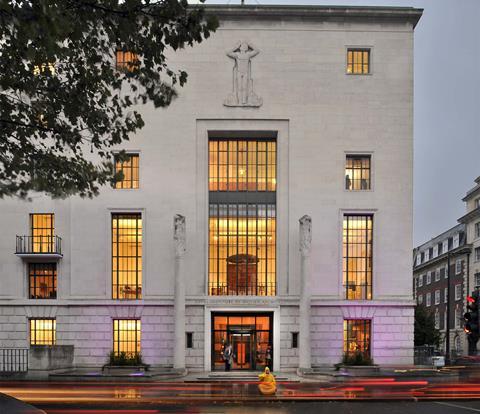Education-reform proposals would be “unwise”, institute says

RIBA has formally set out its opposition to education-reform proposals for the profession launched by the Architects Registration Board earlier this year, cautioning that they could result in the closure of some UK architecture schools.
The Arb’s blueprint for change involves abolishing the three-stage qualification process for architects – known as Parts I, II and III – and replacing it with a new two-part system. One of the aims of the biggest shake-up of architectural education in half a century is to widen access to the profession by reducing the time and cost required to become a qualified architect.
Professional regulator the Arb spent two years working up its Tomorrow’s Architects proposals, which immediately attracted scepticism from RIBA when they were launched in February. In its just-published 13-page response the institute suggests the international standing of UK architectural education will be under threat if the changes are adopted.
RIBA says scrapping Parts I, II and III would be “unwise” because the current system has “significant value attributed internationally” and removing the globally-recognised three-plus-two education system would risk “cutting students off” from accessing international opportunities.
It says that because the Arb’s new framework is designed around a master’s programme, the removal of the requirement for a five-year education might “undermine” the ability of UK architecture schools to attract international students for whom a five-year programme is the “norm”.
“These students both enrich the educational experience of the student cohort and, notably, are an important income stream for universities,” RIBA said. “The loss of these students will diminish the income of schools of architecture and will likely result in the closure of schools, many of which are dependent on international students to stay afloat.”

The institute said it welcomed proposals to open up an entry point for future professionals at the start of Part II, which it said would benefit “a small number of people”. But it said the Arb’s proposed model effectively “undermines and undervalues an undergraduate degree in architecture”.
RIBA president Simon Allford said the Arb’s current proposals fell short of the “radical changes” needed to transform the profession’s education system and also posed a clear risk of harm to the UK’s reputation for educating architects.
“To create a truly accessible, diverse and inclusive Register, we must lower the barriers (but not quality) and facilitate the growth of alternative routes to entry,” Allford said.
“These include apprenticeships, combined work and study models, flexible part-time routes, and a new accelerated model to enable a student to become an architect in five years.
“Arb’s current proposals to remove Parts I, II, and III (titles established and held by RIBA) would undermine a highly valued, world-class architectural education system. As a framework, the ‘part’ system offers flexibility and portability in architectural education, particularly at Part I.
“It is vital that tomorrow’s architects are equipped with the skills, competence and knowledge to address contemporary challenges, including the climate emergency and delivering a safe built environment – but Arb’s proposed outcomes are just not good enough.”
He concluded: “We will continue to work with Arb, schools of architecture and our members, to stress our collective concerns and solutions, to ensure we have an education system fit for the future.”
The Arb consultation on Tomorrow’s Architects closed yesterday. In February, the regulator said it hoped to introduce its new system from September 2027.
















3 Readers' comments